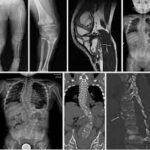Dizziness is a sensation of lightheadedness, unsteadiness, or feeling as though you might faint. Fainting is a temporary loss of consciousness. Both symptoms can be unsettling and may stem from a wide range of causes. While many instances are not related to heart problems, certain cardiac conditions can disrupt blood flow to the brain, leading to these episodes and warranting treatment from a cardiologist.
What Heart Issues Cause Dizziness?
Several conditions affecting the heart’s function can lead to dizziness or fainting. These issues may involve the heart’s electrical system, its physical structure, or its response to changes in body position. A disruption in any of these areas can temporarily reduce the amount of oxygen-rich blood that reaches the brain.
Irregular heart rhythms are a frequent cause. Atrial fibrillation, a condition where the heart’s upper chambers beat chaotically, can lead to lightheadedness. Bradycardia, a slower-than-normal heart rate, may result in insufficient blood being pumped to the brain. Tachyarrhythmias, or very fast heart rates, may prevent the heart’s chambers from filling completely, also reducing blood output.
Problems with the heart’s physical components can obstruct blood flow. Valvular disease, such as a narrowed aortic valve, can make it difficult for the heart to pump blood to the rest of the body. A weakened heart muscle or certain heart medications might prevent the cardiovascular system from adjusting quickly enough to changes in posture, causing a temporary dip in blood flow to the brain.
How Are These Conditions Treated?
When dizziness or fainting is suspected to be heart-related, a cardiologist will perform a thorough evaluation to identify the underlying cause. The assessment typically begins with a detailed review of your medical history, including any pre-existing conditions, family history of heart disease, and a full list of current medications. A physical examination helps the clinician assess your heart sounds, blood pressure, and overall health status.
Further diagnostic steps may include:
- Echocardiogram: This ultrasound of the heart provides detailed images of its chambers, valves, and muscle, helping to identify structural abnormalities.
- Stress Testing: This test monitors the heart’s response to physical exertion, usually on a treadmill, to see how it performs under stress.
- Basic Lab Tests: Blood work can help rule out other non-cardiac causes and assess overall health.
Management approaches are tailored to the specific diagnosis. General strategies might involve lifestyle guidance, such as recommendations for hydration and diet. If medications are identified as a contributor, a clinician may adjust the dosage or type of prescription. All treatment decisions are made under the supervision of a qualified healthcare professional.
When Should You See a Cardiologist?
While a single, mild dizzy spell may not require a specialist’s attention, certain patterns or accompanying symptoms suggest that a consultation with a cardiologist is advisable. Seeking a professional opinion allows for a specialized assessment of your cardiovascular system.
You may be referred to a cardiologist if you experience:
- Recurrent episodes of dizziness or fainting without a clear cause.
- Dizziness that occurs with heart palpitations, a feeling of a racing or fluttering heart.
- Symptoms accompanied by chest discomfort, pressure, or pain.
- Dizziness or fainting associated with shortness of breath.
For sudden and severe symptoms, such as fainting with chest pain or difficulty breathing, seeking urgent medical evaluation is recommended.
Speak Further With a Cardiologist
Experiencing dizziness or fainting can be concerning. A discussion with a cardiologist provides an opportunity for a personalized assessment of your symptoms and medical history. This collaborative approach helps you understand your specific situation and participate in shared decision-making about your health. A specialist can offer a detailed evaluation and recommend a management plan tailored to your individual needs.











